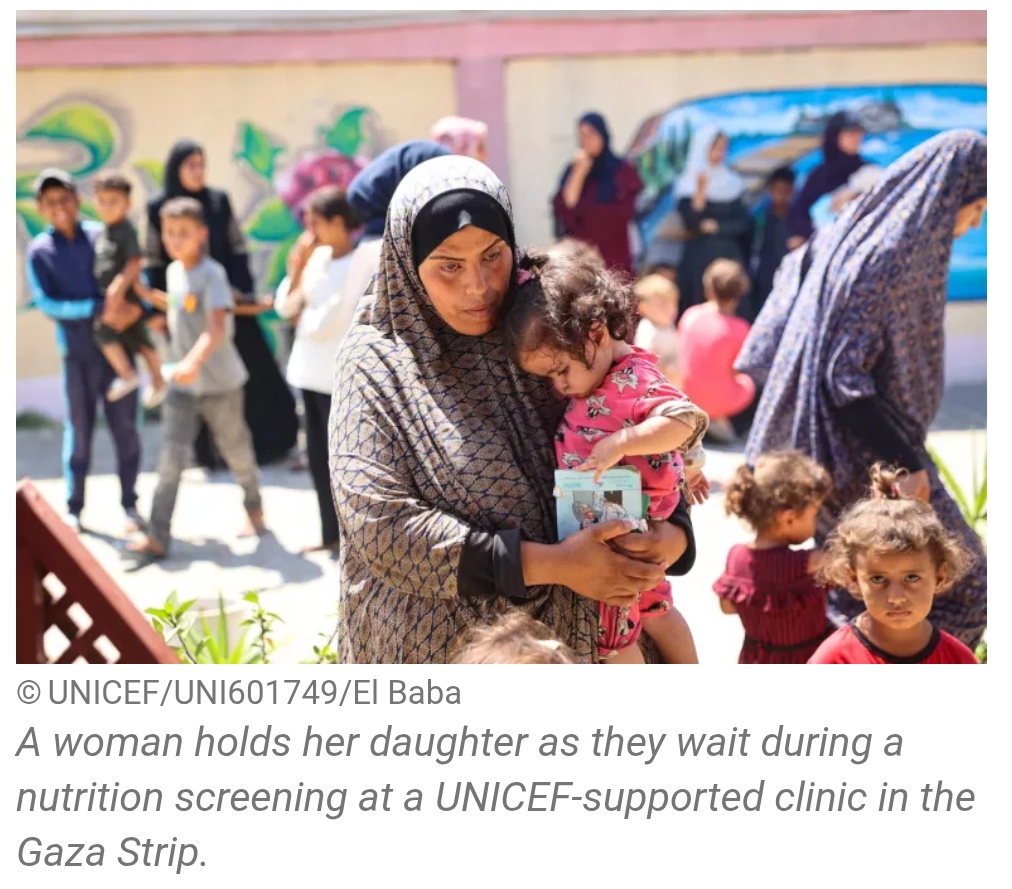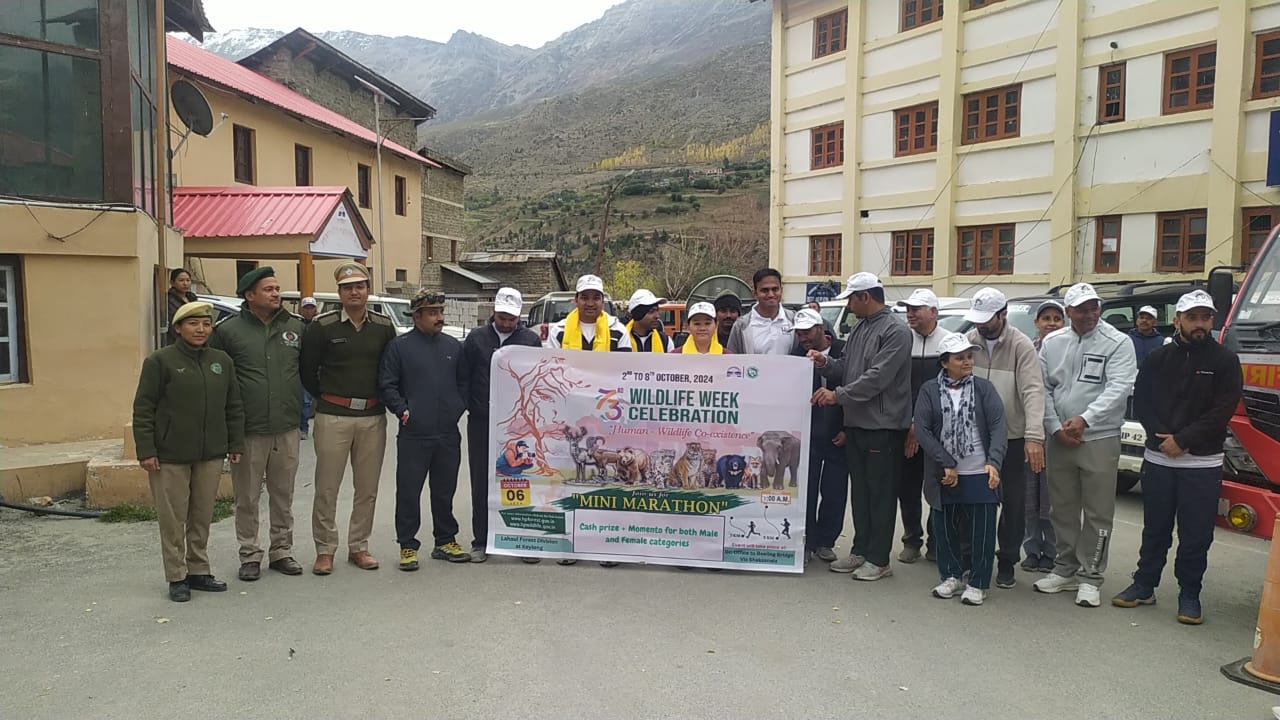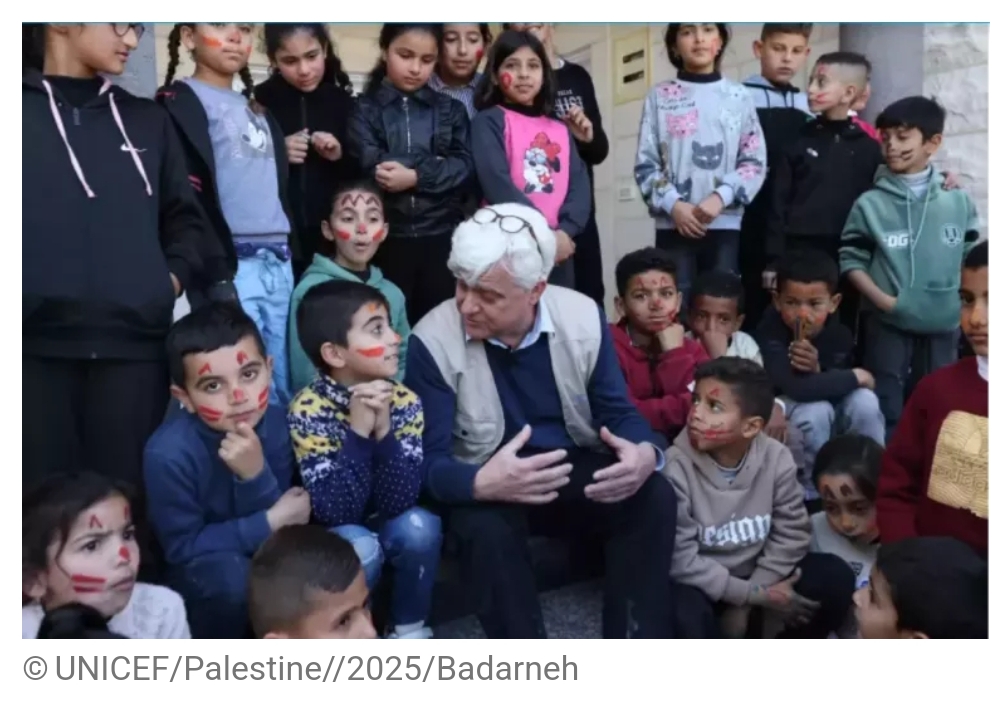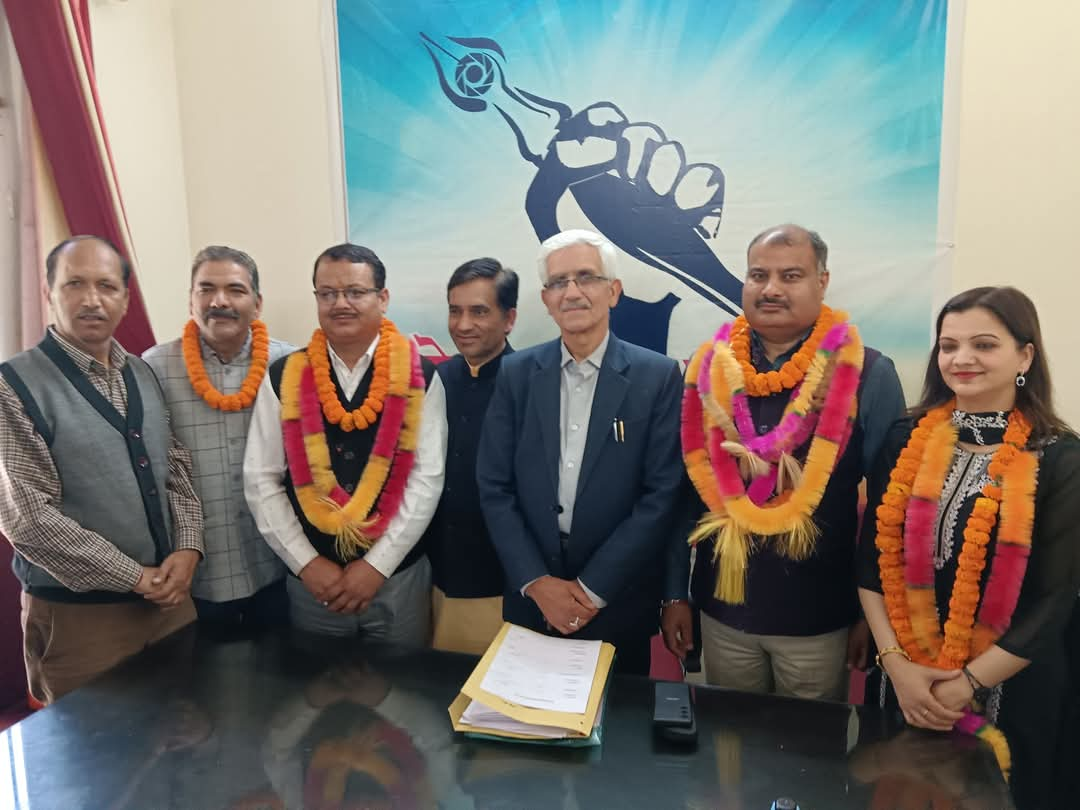UNICEF Warns of Dire Consequences for Children in Gaza as Humanitarian Aid Deliveries Halt.
Gaza Strip:
UNICEF is sounding the alarm about the severe consequences that the stoppage of humanitarian aid deliveries into the Gaza Strip will have on children and families who are already struggling to survive in the wake of ongoing conflict.
The United Nations Children’s Fund (UNICEF) has raised urgent concerns over the impact of aid restrictions that were announced recently, which threaten to severely disrupt lifesaving operations for vulnerable civilians in Gaza. Edouard Beigbeder, UNICEF’s Regional Director for the Middle East and North Africa, emphasized the critical need for continued humanitarian support and for the ceasefire to remain in place to protect children.
“The aid restrictions announced yesterday will severely compromise lifesaving operations for civilians,” Beigbeder said. “It is imperative that the ceasefire – a critical lifeline for children – remains in place, and that aid is allowed to flow freely so we can continue to scale up the humanitarian response.”
During the first phase of the ceasefire, UNICEF and its partners were able to deliver more essential supplies, with nearly 1,000 UNICEF trucks delivering lifesaving aid, including clean water, medical supplies, vaccines, therapeutic food, and other essential materials. Between January 19 and February 28, these shipments represented a more than three-fold increase in the delivery of supplies compared to the previous six-week period.
Despite these efforts, the situation remains dire, especially for children. Reports indicate that at least seven newborn babies died from hypothermia in the past week due to the lack of adequate clothing, shelter, and medical care. These deaths serve as a tragic reminder that the need for aid is critical and urgent.
Children and families in Gaza are struggling without access to enough food, medicine, or shelter. The region’s healthcare system is overwhelmed, with 19 out of 35 hospitals only partially functional, stretching medical resources to their limits.
In response, UNICEF and its partners have worked tirelessly on the ground to scale up their efforts. These efforts include:
Providing warm clothing for 150,000 children and 245,000 tarpaulins for 70,000 families.
Delivering essential medical care to more than 25,000 people.
Increasing water distribution to nearly 500,000 people daily in more remote areas and repairing critical water infrastructure, including desalination plants.
Treating over 2,600 children suffering from acute malnutrition.
Distributing humanitarian cash assistance to more than 195,000 people, including at least 100,000 children.
Completing a polio vaccination campaign that reached over 600,000 children, and providing routine vaccinations to at least 14,000 children to prevent deadly and contagious diseases.
While these efforts have significantly expanded the reach of lifesaving aid, the level of devastation in Gaza remains catastrophic. Beigbeder stressed that the ceasefire must hold and that more aid must be allowed in to prevent further suffering and loss of life. He also called on all parties involved to adhere to international law, ensuring that humanitarian aid is delivered unimpeded and that essential services for families and children are maintained.
UNICEF is urging immediate and effective measures to facilitate the continued provision of vital services, including through multiple crossings into Gaza. The organization also advocates for the release of all hostages and the establishment of a permanent ceasefire, which would allow for reconstruction and the restoration of critical services to support the people of Gaza.
As the humanitarian crisis deepens, the world’s attention remains focused on the lives of children and families in Gaza, whose survival depends on sustained humanitarian efforts and international cooperation.




